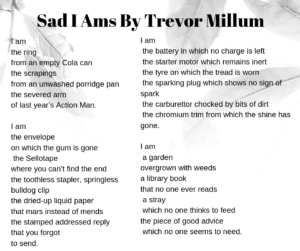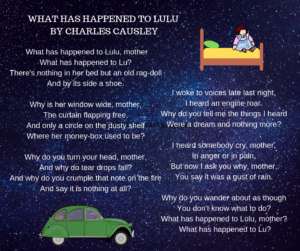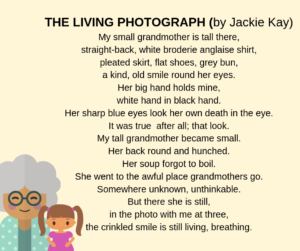Category: Uncategorized
Pasir Gudang oh Pasir Gudang
Last March, Malaysians were shocked with irresponsible act of some individuals that caused pollution and its impact of individuals health. But, less than 6 months, there are recurrent incidents in Pasir Gudang. Again? We need to do something about it ASAP. Is it enough just to take action by closing schools? This toxic pollution needs to be stopped. It is a national disaster and the recurring incidents are the proof that somebody still dumps toxic waste in Pasir Gudang.
What are (some) of the criticism about CEFR cum new KSSM syllabus for English?
I found quite a lot criticism and concerns by various individuals mainly teachers or educators (those people who are in teaching profession) on the current implementation of CEFR based curriculum and MUET. Here are some of those that I can find
English Literature is a dying subject
MUET is a requirement for admission
Psychopath…. a good example for my case study activity
When I declared that my Human Development class (MPPE 1333) would use Case Based Learning, I am determined to find as many authentic examples as I could from books, journals and my own life experience. One of the examples that I think I could include in my existing cases would be this one. A case of a brother who killed his younger sister to torment his mother (he has this so twisted thought that rather than killing his mom, he decided to kill his sister so that his mom would lose two of her children – his sister and him). It seems that all of the cases that I have found are from US (except the examples from my own life). I wonder if there are no recent psychopath cases in other parts of the world.
What did I do while undergoing Latihan Ikhtisas_Part 5
I have to teach poetry and literature while doing my Latihan Ikhtisas. With zero background in TEASL or BENL (Bachelor in English Language and Literature), I admit that I was struggling to get myself familiar with the poems and short stories. I start to read poems when I was at university for leisure reading, so I don’t feel the need and pressure to understand it accurately. I had never learned poems at secondary school (for English). So, it was a bit stressful for me to teach the students the literature part.
Some of the poems and literature that I have to teach are as follow.
For form 1
- News Break (poem)
- Sad I Ams (poem)
- King Arthur (graphic novel)
- Fair’s Fair (short story)
For form 4
- The Living Photograph (poem)
- The Charge of the Light Brigade (poem)
- Leaving (short story)
- Tanjong Rhu (short story)
I constructed quizzes using Quizziz and also worksheet that I used for class activity. Nothing much though. For the Quizziz and worksheet, they have to do it in pair or group. It depends on the situation. Sometimes I used the computer room if I wanted to give them a quiz using Quizziz. It is an element of gamification and active learning that I tried to incorporate in my class.
Well, at least even though I am not trained in TEASL, but I just gave my best shot. That’s my motto. Sometimes I guess we have to be impostor. A good one to succeed in whatever thing that we do. In this case, to make sure that I could deliver well my lesson to the students, I become an English teacher impostor. 😀
Poems that I have to teach during Latihan Ikhtisas (and after)_Part 6
This is the first poem that I taught my form 1 students last year when I did Latihan Ikhtisas. I taught this before the mid term examination. I did not have the time to revise it before the mid term examination with the students. Some of them could not answer it well. So, I didn’t have a quiz on Quizziz on this poem. I only used a worksheet as an activity which contains the following questions.
Exercise: News Break
Paste this worksheet on your Literature exercise book. Write the answer according to the questions given. You do not need to rewrite the questions again.
- What is this poem about?
- What does the word ‘crease’ mean in stanza 2?
- What animal is the child compared to?
- In stanza 4, who does the parent think the child is?
- What is the actual reason for the change in the child’s behavior?
- Why do you think the child was behaving himself? Give a reason.
Poems that I have to teach during Latihan Ikhtisas (and after)_Part 5
This is the second poem that I taught my form 1 students last year when I did Latihan Ikhtisas. I taught this after the mid term examination. It was included in the final year examination. I have a quiz on Quizziz on this poem too as an activity that I did using the computer room as formative assessment.
I sent the results to their parents. One parent replied my email telling me that she is thankful with what I do in class. She knows her son performance. But for the son, when he knew that his mom got an email from me, he was “grounded” and he has to read book instead of browsing the internet or watching the TV. He later said “Teacher, jangan la hantar email pada mak saya. Saya tak boleh tengok TV lama-lama atau tengok Youtube bila balik wajib. Kena baca buku sebab mak kata teacher beritahu dia saya kurang membaca“. [Translated: Teacher, please don’t send email to my mother. I was grounded and cannot watch the TV or Youtube for long. I have to read book because my mom said you told her that I don’t read a lot]. 😀
Poems that I have to teach during Latihan Ikhtisas (and after)_Part 4
This is the poem that I taught my form 5 students in my 2nd tuition class after Latihan Ikhtisas. I don’t have a quiz on my Quizziz on this topic. But I have a worksheet that I use for my class.
Poems that I have to teach during Latihan Ikhtisas (and after)_Part 3
This is the second poem that I taught my form 4 students last year when I did my Latihan Ikhtisas. I have a quiz on my Quizziz on this topic.
Poems that I have to teach during Latihan Ikhtisas (and after)_Part 2
This is the first poem that I taught my form 4 students last year when I did my Latihan Ikhtisas. I have a quiz on my Quizziz on this topic.







